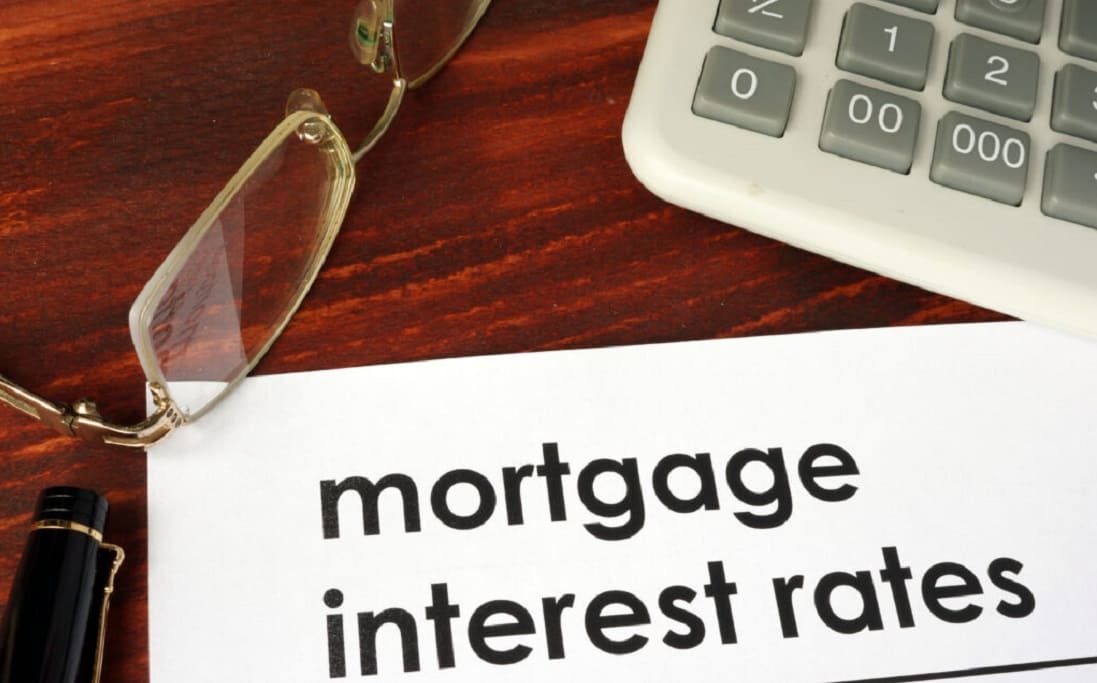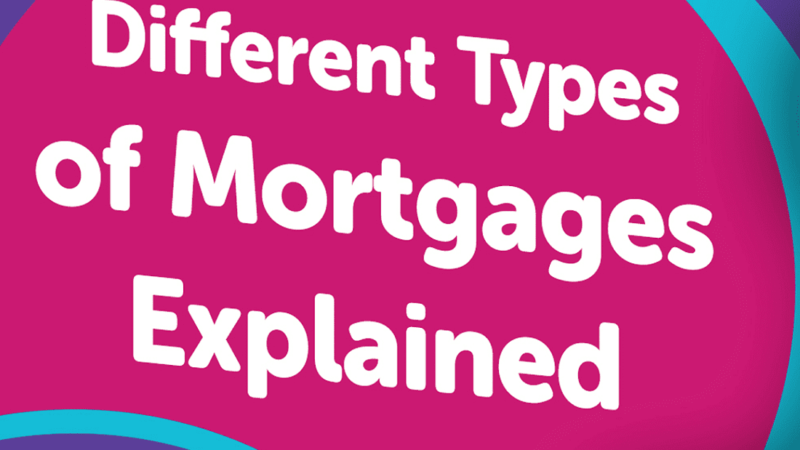Mortgage Interest Rates Explained

Table of Contents
ToggleWhat is a mortgage interest rate?
Buying a home is a thrilling yet financially intricate journey, and mortgage interest rates often top the list of concerns. These cryptic numbers are key to your monthly payments, impacting your budget and overall affordability. But fear not, aspiring homeowner!
Whether you’re a first-time buyer or considering remortgaging, this blog is your one-stop guide to understanding UK mortgage interest rates. Prepare to gain valuable insights, dispel common myths, and feel confident navigating your homeownership journey. So, buckle up and let’s embark on this informative adventure!
What is the interest rate on a mortgage?
When you take out a mortgage, your lender will charge you interest for using their services. This is typically a percentage of the total amount you borrow, which you’ll pay on top of your agreed loan repayments.
You’ll find that different mortgage products have different interest rates, and it’s vital you take this into account as it can have a huge impact on how much you actually end up paying for your property. The amount you’ll owe throughout your loan term will equal the amount you initially borrow, also known as the capital or principal, and the interest that is added on top.
Think of it this way: if you borrow $200,000 with a 5% interest rate, you’ll pay an additional $10,000 each year on top of your regular mortgage payment. This $10,000 is the interest, calculated as a percentage of the borrowed amount.
Why are mortgage interest rates important?
Mortgage interest rates are crucial for several reasons, significantly impacting both affordability and overall loan cost:
- Direct Impact on Monthly Payments:The interest rate determines the interest you pay each month on top of your principal repayment. A higher rate leads to significantly higher monthly payments, making the mortgage more expensive and potentially pushing it beyond your budget. Conversely, a lower rate makes monthly payments more manageable, freeing up more disposable income for other expenses.
- Total Loan Cost:The interest paid accumulates over the entire loan term, forming a substantial portion of the total loan cost. A higher rate significantly inflates the total amount you pay over the life of the loan, even if the difference in monthly payments seems small. Reducing the interest rate can save you tens of thousands of dollars in the long run.
- Qualifying for a Mortgage:Lenders use interest rates in their affordability calculations to determine how much you can borrow based on your income and expenses. A higher rate means you qualify for a smaller loan amount, potentially limiting your housing options. Conversely, a lower rate allows you to qualify for a larger loan, giving you more flexibility in choosing your dream home.
- Impacting the Housing Market:Mortgage interest rates significantly influence the housing market. When rates are low, more people can afford to buy, increasing demand and potentially driving up property prices. Conversely, higher rates decrease affordability, reducing demand and potentially softening prices.
Therefore, understanding mortgage interest rates is crucial for:
- Budgeting for your monthly payments and overall loan cost
- Qualifying for and choosing a suitable mortgage
- Navigating the housing market and making informed decisions
By monitoring interest rate trends and understanding their impact, you can make informed financial decisions when buying a home.
How do mortgage interest rates work?
Mortgage interest rates play a crucial role in determining your home loan’s affordability and overall cost.
The Basics:
- Interest is the cost you pay for borrowing money: It’s calculated as a percentage of the loan amount you borrow, expressed as an annual rate (e.g., 2.5%).
- The interest rate determines your monthly payments: Higher rates mean higher monthly payments and vice versa.
- Several factors influence your interest rate: Your credit score, loan type, loan term, deposit size, and chosen lender.
Types of Mortgage Rates in the UK:
- Fixed-rate: The interest rate remains unchanged throughout the mortgage term (e.g., 2 years, 5 years, or the entire term). This provides stability and predictability in your monthly payments.
- Tracker-rate: The interest rate is linked to the Bank of England’s base rate, meaning it can fluctuate with market conditions. This can be lower than fixed rates initially but carries the risk of rising in the future.
- Variable-rate: The lender sets the interest rate and can change at any time, based on their internal criteria. This option offers less certainty but can sometimes be competitive.
Understanding the Calculation:
- Your monthly payment is calculated by factoring in the loan amount, interest rate, loan term, and repayment method (repayment or interest-only).
- For example, with a £200,000 loan, a 2.5% interest rate, and a 25-year term, your monthly payment might be around £875. This includes both principal repayment and interest.
- The higher the interest rate, the larger the portion of your payment goes towards interest and the slower the principal repayment.
Additional Points:
- Interest rates are expressed as APR (Annual Percentage Rate): This includes the base rate and any additional fees, giving a more accurate picture of the overall cost.
- Compare rates from different lenders: Rates can vary significantly, so shopping around is crucial to finding the best deal.
- Consider using a mortgage broker: They can help you understand your options and negotiate with lenders on your behalf.
What are the current interest rates for a mortgage in the UK?
According to data from Rightmove which is correct as of January 9 2024, the average interest rate on a 5 year fixed-rate mortgage is 4.94% and the average interest rate on a 2 year fixed-rate mortgage is 5.23%, with both being relative to 75% LTV. The tables below contain data on deals for other LTV ratios while showing the week-on-week changes they’ve experienced.
Loan to value (LTV) | January 3 2024 | January 9 2024 | Weekly change |
60% LTV | 4.82% | 4.61% | -0.21% |
75% LTV | 5.23% | 5.07% | -0.16% |
85% LTV | 5.55% | 5.41% | -0.14% |
90% LTV 95% LTV | 5.69% 5.81% | 5.53% 5.75% | -0.16% -0.06% |
Current average five-year fixed mortgage rates:
Loan to value (LTV) | January 3 2024 | January 9 2024 | Weekly change |
60% LTV | 4.44% | 4.36% | -0.08% |
75% LTV | 4.94% | 4.87% | -0.07% |
85% LTV | 5.10% | 5.04% | -0.06% |
90% LTV | 5.16% | 5.06% | -0.10% |
95% LTV | 5.40% | 5.31% | -0.09% |
Are interest rates going down?
After raising the base rate 14 consecutive times to combat inflation, the Bank of England decided to keep the base rate at 5.25% in its September, November, and December 2023 meetings. Since inflation dropped considerably in the second half of 2023, money markets forecast a base rate decrease to 4.25% by the end of 2024. Albeit, decreases will likely be gradual to ensure that inflation meets the 2% target.
What can I do if my mortgage interest rate goes up?
If you’re aware of interest rates going higher, or you’re finding it difficult to manage recent increases, one solution could be remortgage at a better fixed rate. Bear in mind, however, that this could open you up to paying an early repayment charge so it’s best to know of this beforehand.
You’ll only be subject to interest rate changes if you’re on a variable rate mortgage such as a tracker mortgage, the remaining length of which should also be a major determining factor. For instance, if you only have a couple years of your mortgage’s term left, it may be shrewd to lock in a fix before any further interest rate increases. On the other hand, if you have around 20 years remaining on your mortgage, then it’s almost certain that interest rates will return to a more favourable standard eventually.
Calculating mortgage interest rates
There are two main ways to calculate mortgage interest rates: manually and using an online calculator.
Manually Calculating Mortgage Interest:
- Gather information: You’ll need your loan amount, interest rate (expressed as a decimal, not a percentage), and loan term (in months).
- Calculate the monthly interest: Divide the annual interest rate by 12 (number of months in a year). For example, if your annual rate is 4%, your monthly rate would be 0.04 / 12 = 0.003333.
- Multiply the monthly interest by the loan amount: This gives you the interest accrued each month. For example, with a £200,000 loan and a monthly rate of 0.003333, your monthly interest payment would be £200,000 x 0.003333 = £666.67.
Using an Online Calculator:
Many online calculators simplify the process:
- Enter your loan amount, interest rate, and loan term.
- Select the type of mortgage (fixed, variable, etc.).
- Some calculators may ask for additional details like down payment and property taxes.
- The calculator will then provide you with your monthly payment, total interest paid, and amortization schedule (breakdown of how your payments are allocated to principal and interest).
Popular UK Mortgage Calculators:
- Money Saving Expert: https://www.moneysavingexpert.com/mortgages/mortgage-rate-calculator/
- Which?: https://www.moneyhelper.org.uk/en/homes/buying-a-home/mortgage-calculator
- Government website: https://www.gov.uk/government/statistics/how-are-uk-monthly-mortgage-repayments-changing
Mortgage interest rates UK average
It’s important to remember that mortgage interest rates in the UK are constantly changing due to various factors like the Bank of England base rate, market conditions, and individual lender offerings. However, to give you an idea of the current landscape, here’s an overview of average rates:
Average Rates:
- 2-year fixed-rate mortgage: 5.03%
- 5-year fixed-rate mortgage: 4.69%
- Tracker-rate mortgage: Variable depending on the Bank of England base rate (currently 5.25%)
What is a good mortgage rate?
What makes a good mortgage rate depends on the type of mortgage. The product with the lowest rate isn’t necessarily the cheapest or most suitable product for you, because so many other factors are involved. The best way to determine whether a lender is offering a good rate is to compare it to similar products.
It’s also important to remember that mortgage rates change depending on the base rate and economic climate when you take out your mortgage. Your financial circumstances can also dictate a ‘good’ mortgage rate: for example, it’s easier to access lower rates if you have a good credit rating or can afford to put down a large deposit.
What is the mortgage base rate?
The mortgage base rate, also known as the Bank of England base rate, is the minimum interest rate at which the Bank of England lends money to commercial banks and other financial institutions. It indirectly influences the interest rates these institutions offer on various products, including mortgages.
Impact on Mortgage Rates:
- Generally, mortgage rates also tend to increase when the base rate rises. This is because when the base rate goes up, it becomes more expensive for banks to borrow money, so they often pass on this increased cost to their customers by charging higher interest rates on loans, including mortgages.
- The opposite is also true: Mortgage rates tend to decrease when the base rate falls. However, the exact impact may vary depending on the lender and other factors.
Indirect vs. Direct Impact:
- It’s important to remember that the base rate isn’t directly applied to mortgages. Instead, it influences the benchmark rates used by lenders to set their own mortgage rates. This means the impact on individual mortgage rates can vary depending on the lender and the type of mortgage product.
- Some mortgage products, such as tracker mortgages, are directly linked to the base rate, so their rates fluctuate automatically when the base rate changes. Others, like fixed-rate mortgages, are not directly linked but may still be indirectly affected by changes in the base rate.
Current Scenario :
The current base rate is set at 5.25%, a level not seen in around 15 years. But, as this figure is reviewed by the board of governors every month, it’s liable to change at short notice.
Mortgage fees and charges
Getting a mortgage involves much more than just the monthly repayments. Various fees and charges can significantly impact your overall borrowing costs.
Upfront Fees:
- Arrangement fee: This is a one-time fee the lender charges for processing your mortgage application. Depending on the lender and loan amount, it can range from £500 to £2,000 or more.
- Valuation fee: The lender usually needs a professional valuation of the property you’re purchasing to assess its market value. This fee can range from £200 to £500.
- Legal fees: You’ll need a solicitor to handle the legal aspects of your mortgage, such as conveyancing and searches. Legal fees can vary depending on the complexity of the transaction and the chosen solicitor.
- Broker fee: If you use a mortgage broker to help you find and apply for a mortgage, they may charge a fee for their services. This can be a flat fee or a percentage of the loan amount.
- Stamp Duty Land Tax (SDLT): This is a tax levied by the government on the purchase of property in England and Northern Ireland. The amount you pay depends on the property’s purchase price and whether you’re a first-time buyer.
Ongoing Fees:
- Mortgage payment protection insurance (MPPI): This optional insurance covers your mortgage payments if you lose your job or become ill. While it can provide peace of mind, it adds to your monthly costs.
- Early repayment charges: You might be charged a penalty fee if you repay your mortgage early. This is typically only applicable during the initial fixed-rate period of a mortgage.
- Administration fees: Some lenders charge annual administration fees for managing your mortgage account.
What are the different types of mortgage rates?
In the UK, navigating mortgage rates can feel like exploring a labyrinth. But fear not, brave homeowner! Here’s a breakdown of the different types you’ll encounter:
Fixed-Rate Mortgages:
- Your superhero of predictability: The interest rate stays fixed throughout the chosen term (e.g., 2 years, 5 years). This offers stability and peace of mind knowing your monthly payments won’t change regardless of external factors.
- Example: You secure a 3-year fixed-rate mortgage at 4.25% on a £200,000 loan. Your monthly payment remains fixed at approximately £997, making budgeting easier.
Tracker-Rate Mortgages:
- Like surfing the interest wave: The interest rate is directly linked to the Bank of England base rate, meaning it can fluctuate along with it. This can be cheaper initially but carries the risk of rising rates increasing your payments.
- Example: You choose a tracker-rate mortgage tied to the base rate (currently 5.25%). If the base rate increases, your mortgage rate and monthly payment will increase accordingly.
Varible-Rate Mortgages:
- The lender calls the shots: They set the interest rate, which can change based on their internal factors, offering less predictability than tracker rates. Less common in the UK.
- Example: Your lender sets an initial rate of 4.5% for your variable-rate mortgage. This rate could go up or down in the future depending on their internal policies.
Discount Mortgages:
- A temporary discount on the lender’s standard rate: This applies for a specific period (e.g., 2 years) before reverting to the lender’s standard variable rate. Less common in the UK.
- Example: You get a 2-year discount of 1% on the lender’s standard rate of 5.5%, bringing your initial rate down to 4.5%. After 2 years, it rises to the standard rate.
Offset Mortgages:
- Linking your savings to your mortgage: You link your savings account to your mortgage, effectively reducing the interest you pay by offsetting the balance against your loan amount. Useful if you have significant savings.
- Example: You have £50,000 in savings linked to your £200,000 mortgage. This reduces the interest you pay as if you only had a £150,000 loan.
Which mortgages come with the lowest interest rates?
In the realm of mortgages, fixed-rate options generally come with higher interest rates than their variable counterparts. Why? Well, it’s a bit like paying a premium for peace of mind – with a fixed-rate mortgage, you know exactly what your monthly repayments will be.
This principle extends to longer fixed-rate deals, especially those spanning five years or more. Lenders face a greater risk with these extended periods because market rates might fluctuate during that time. Consequently, a longer-term fixed rate often carries a higher interest rate than a shorter-term one, reflecting the lender’s need to hedge against potential market changes.
What is APRC?
When comparing mortgages, you’ll often encounter two crucial terms: interest rate and APRC. While the interest rate seems straightforward, APRC stands for Annual Percentage Rate of Charge and provides a more comprehensive picture of the true cost of your mortgage.
Here’s a breakdown of APRC and how it differs from the interest rate:
Interest Rate:
- Expressed as a percentage (e.g., 4.25%).
- Represents the annual cost of borrowing the money from the lender.
- Doesn’t include additional fees and charges associated with the mortgage.
APRC:
- Also expressed as a percentage (e.g., 4.5%).
- Takes into account the interest rate as well as all relevant fees and charges associated with the mortgage over the entire loan term.
- Offers a more realistic comparison of different mortgage deals as it factors in the total cost of borrowing, not just the base interest rate.
Example:
- You compare two mortgages:Mortgage A: 3.9% interest rate, £2,000 arrangement fee.
- Mortgage B: 4.1% interest rate, no arrangement fee.
- At first glance, Mortgage A seems cheaper due to the lower interest rate.
- However, when you calculate the APRC, you might find that:Mortgage A’s APRC is 4.2% due to the arrangement fee being factored in.
- Mortgage B’s APRC is 4.1% since it has no additional fees.
- In this case, Mortgage B would be the more affordable optiondespite the slightly higher interest rate due to the absence of fees.
How to get the best mortgage rate?
There’s no single magic formula for securing the UK’s absolute “best” mortgage rate, as it depends on various factors. However, by following these tips and understanding market dynamics, you can significantly increase your chances of finding a highly competitive rate that aligns with your needs:
Individual Preparation:
- Boost your credit score: A higher credit score demonstrates responsible financial behavior, making you a more attractive borrower and potentially qualifying for lower rates.
- Increase your deposit: A larger deposit reduces the Loan-to-Value ratio (LTV), signifying lower risk for lenders and often leading to better rates.
- Stabilize your income and employment: Consistent employment and a healthy income improve your borrowing power and eligibility for competitive rates.
- Understand your needs and budget: Clearly define your desired mortgage type, term length, and affordable monthly payments to guide your search.
Market Research and Comparison:
- Shop around: Don’t settle for the first offer. Compare rates and terms from various lenders, including banks, building societies, and online mortgage brokers.
- Utilize online comparison tools: Leverage online calculators and comparison platforms to quickly assess different rates and features across various lenders.
- Consider using a mortgage broker: A qualified broker can access exclusive deals, negotiate rates on your behalf, and guide you through the process based on your specific circumstances.
- Stay updated on market trends: Monitor changes in the Bank of England base rate and overall market conditions to understand potential rate fluctuations.
Negotiation and Application:
- Negotiate fees: Don’t be afraid to negotiate arrangement fees, valuation fees, and other charges with lenders to potentially lower your overall borrowing costs.
- Present your financial strength: Highlight your strong credit score, stable income, and responsible financial behavior to strengthen your negotiating position.
- Be prepared with documentation: Gather all necessary documents like payslips, bank statements, and proof of address to expedite the application process.
- Seek legal advice: Consider consulting a solicitor to review the mortgage terms and ensure they align with your interests and understanding.
How are mortgage interest rates set?
While there’s no single entity directly dictating mortgage interest rates in the UK, several key factors interact to influence them:
Macroeconomic Factors:
- Bank of England Base Rate: This is the minimum rate at which the Bank of England lends to commercial banks. When the base rate rises, it generally leads to higher borrowing costs for banks, who often pass these increased costs onto borrowers through higher mortgage rates. The current base rate in the UK (as of October 27, 2023) is 5.25%, contributing to the recent increase in mortgage rates.
- Inflation: As inflation rises, the value of money decreases. To combat inflation, the Bank of England may raise the base rate, indirectly impacting mortgage rates.
- Economic Sentiment: Overall economic conditions, such as growth, stability, and risk perception, influence investor confidence and risk appetite. This can affect the availability and cost of funds for lenders, ultimately impacting mortgage rates.
Market Forces:
- Supply and Demand: When demand for mortgages is high, lenders may raise rates to manage their loan-to-deposit ratios and profitability. Conversely, in times of low demand, they might offer more competitive rates to attract borrowers.
- Competition: The level of competition between lenders plays a significant role. More competition generally leads to more attractive rates for borrowers as lenders strive to stand out.
Individual Borrower Factors:
- Credit Score: A higher credit score indicates a lower risk of default, making borrowers more attractive to lenders and potentially qualifying them for lower rates.
- Loan-to-Value Ratio (LTV): A lower LTV (higher deposit) signifies less risk for lenders, often leading to better interest rates.
- Employment and Income: Stable employment and a healthy income demonstrate borrowing capacity and responsible financial behavior, potentially resulting in more competitive rates.
- Chosen Mortgage Type: Different mortgage types have varying interest rate structures. Fixed-rate mortgages typically have higher initial rates compared to tracker rates, but offer stability throughout the term. Variable-rate mortgages generally have lower initial rates but fluctuate based on external factors.
Mortgage Interest Rates History UK
Understanding historical trends in mortgage interest rates can be helpful when navigating the current market and making informed decisions for your homeownership journey.
Long-Term Perspective:
- Average rate from 1995 to 2024: 5.68%
- Highest recorded rate: 8.87% in September 1998
- Lowest recorded rate: 3.59% in November 2021
Recent Fluctuations:
- Early 2022:Rates began rising from historic lows due to various factors, including:Bank of England base rate increases: Aiming to curb inflation, the Bank of England started raising the base rate in December 2021, contributing to an overall upward trend in mortgage rates.
- Global economic uncertainty:Factors like the war in Ukraine and ongoing supply chain disruptions added to economic unease, impacting investor confidence and influencing borrowing costs.
- Current Rates :Average two-year fixed rate:37%
- Average five-year fixed rate:84%
- Tracker rates:Linked to the base rate, currently at 5.25%, meaning these rates can fluctuate as the base rate changes.
Remember, seeking professional advice from a mortgage broker can significantly benefit your situation by offering personalized guidance tailored to your specific financial circumstances and desired options.
We are accredited with some of the top Mortgage brokers in UK so that we can provide a solution for your finance needs. Mortgage advisory services are generally free. If you require an expert mortgage broker, then be sure to reach out to us. Click the button






